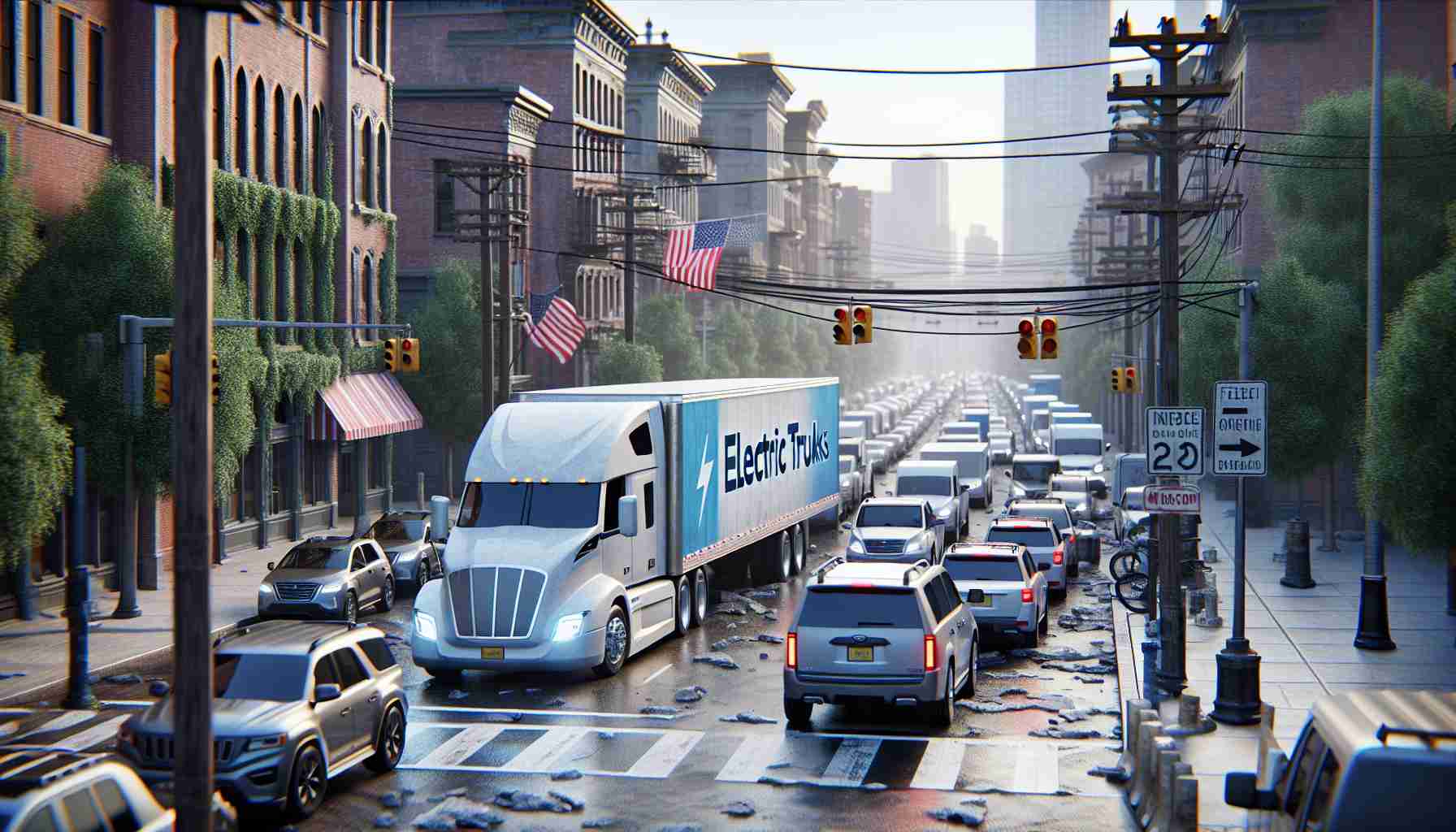Significant action is brewing in New Jersey as lawmakers consider postponing the controversial electric truck regulations. Scheduled to commence on January 1, 2025, the Advanced Clean Trucks mandate aims to transition medium- and heavy-duty trucks to an increasing percentage of zero-emission vehicles each year, ultimately caping at 75% by 2035.
The push for a two-year delay was sparked during a recent unanimous vote by the New Jersey Assembly Transportation and Independent Authorities Committee. Although some lawmakers support the mandate’s environmental goals, they acknowledge obstacles such as the high costs of electric trucks and the insufficient charging infrastructure that could hinder implementation.
Assemblyman Mike Inganamort expressed concerns that an immediate shift to electric vehicles could jeopardize small and medium-sized businesses. He emphasized that without adequate infrastructure, mandating the sale of only battery-powered trucks could disrupt New Jersey’s economy.
Opposition from various groups, including the New Jersey Motor Truck Association, has also surfaced, arguing that the financial burden of electric trucks—three times that of diesel trucks—could ultimately increase consumer prices.
While New Jersey is not alone in grappling with this transition, many states are similarly questioning California’s aggressive approach. As discussions progress, a delay may provide the time needed to address key challenges surrounding this ambitious mandate.
New Jersey’s Electric Truck Regulations: Could a Delay Save Businesses?
Overview of the Advanced Clean Trucks Mandate
New Jersey’s legislative body is actively deliberating a two-year delay on its Advanced Clean Trucks (ACT) mandate, originally set to roll out on January 1, 2025. This regulation targets the transition of medium- and heavy-duty trucks to zero-emission vehicles, aiming for a 75% compliance rate by 2035. The ACT mandate reflects the state’s commitment to environmental sustainability, yet it has sparked significant debate regarding its feasibility and impact on the local economy.
Pros and Cons of the Delay
– Pros:
– Economic Stability: Allowing more time before implementation may help small and medium-sized businesses adjust to the transition, which is crucial for the state’s economy.
– Infrastructure Development: A delay could provide opportunities to enhance charging infrastructure, ensuring that businesses can support electric trucks more effectively.
– Cons:
– Environmental Impact: Delaying the regulation may prolong reliance on fossil fuels, potentially hindering state and national climate goals.
– Regulatory Uncertainty: Inconsistent policies could create confusion among manufacturers and consumers regarding the future of truck production and sales.
Key Challenges Facing Implementation
The New Jersey Assembly Transportation and Independent Authorities Committee has highlighted several key challenges regarding the ACT mandate:
1. High Costs of Electric Trucks: The upfront cost of electric trucks can be three times higher than that of their diesel counterparts, presenting significant financial hurdles for businesses.
2. Insufficient Charging Infrastructure: Current infrastructure is inadequate to support the transition, raising concerns about the practicality of switching to electric trucks without significant upgrades.
3. Pressure from Industry Groups: Organizations like the New Jersey Motor Truck Association argue that the financial implications could lead to higher consumer prices and economic instability.
Comparative Insights from Other States
New Jersey is not an outlier; several states are reassessing California’s stringent regulations due to similar concerns. As of now, states like New York and Massachusetts are also working on legislation that balances environmental goals with economic realities. The looming question remains: How will these states address the challenges of electric truck adoption while ensuring the stability of local businesses?
Future Trends and Innovations
As the debate unfolds, innovations in electric vehicle technology and battery life are expected to evolve rapidly, which may eventually alleviate some concerns about costs and infrastructure. Additionally, advancements in renewable energy sources could provide an alternative energy model for charging stations.
Final Thoughts
As New Jersey weighs the implications of the Advanced Clean Trucks mandate, the discussions surrounding its implementation will likely continue to evolve. The balance between environmental responsibility and economic viability remains a pivotal concern, influencing decisions that could shape the future of transportation in the state.
For more information regarding New Jersey’s legislation and transport policies, visit New Jersey’s official website.
